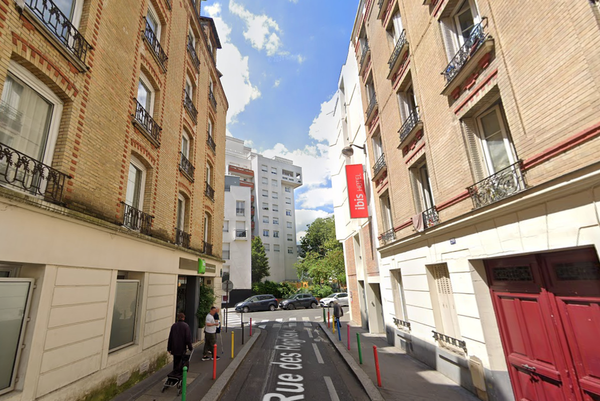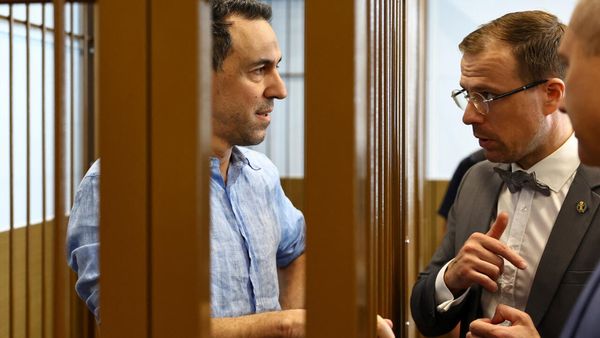
In South Africa, there are drones monitoring weeds; in Mauritius, there are computers crunching health data for better outcomes for patients; and in Nairobi, surveillance systems impose a modicum of order on the chaotic traffic.
The bright new future of artificial intelligence in Africa is part of the bright new future of the continent as a whole, advocates say.
“One thing is clear: Africans have a goldmine at our fingertips. A rapidly growing population of 1.4 billion people, 70% under the age of 30, combined with huge growth in AI investments, creates a potent recipe … We will not sit back and wait for the rest of the world to reap our rewards,” wrote Mahamudu Bawumia, the vice-president of Ghana and head of the government’s economic management team, in the Guardian earlier this year.
Many point out that AI is not new on the continent. Ghanaian cashew farmers use unmanned aerial vehicles to detect disease by collecting data from leaves, stems and trunks of cashew trees, allowing swift detection of symptoms before they become visible and lead to serious crop damage. In Rwanda, AI efficiently schedules the delivery of medicine to patients in remote areas by similar drones. In Cape Town, a startup is digitising African languages to allow them to be translated by AI-powered software such as Google Translate and so boost connectivity. In Namibia, AI is orienting solar panels to maximise their energy generation capacity.
But Africa is lagging behind the rest of the world, nonetheless. An index compiled by Oxford Insights, a UK-based consultancy, placed Mauritius as the most advanced sub-Saharan country but only 57th globally. South Africa followed and is the only country in the region with commercially available 5G infrastructure and other essential infrastructure.
“This is the challenge of our times … to integrate AI into the lives of 1.4 billion people.” said Prof Tshilidzi Marwala, a pioneer of the study of AI in Africa and now rector of the United Nations University in Tokyo. “The idea of scaling up is an important one and needs to be done.”
Driving the spread of AI across the continent in recent years has been an acute need for solutions to multiple challenges. Despite massive progress over recent decades and hundreds of millions of people being lifted out of poverty, many African nations remained crippled by debt, political instability and high levels of violent conflict. Few have the resources to exploit the potential of fast-growing populations or cope with their needs.
This is where AI can play an important role, experts say.
When the Covid-19 pandemic exposed South Africa’s weak health infrastructure and economy, scientists at the University of Johannesburg were able to model the spread of the first wave of disease in South Africa, providing invaluable assistance to authorities struggling to understand how to react. With climate change leading to droughts and ever more acute shortages of water, AI has also been used to direct and conserve water reserves more efficiently. Google is using AI to predict floods on the continent, and is working with the UN to forecast locust infestations, which can devastate entire regions
This urgent requirement for more AI places African nations in a double bind, experts say. Solutions using AI are acutely needed but are slowed by a low level of skills, digital infrastructure, internet penetration and investment in research, which could be alleviated if AI was more widespread. There is also often a lack of high-quality data to allow AI programmes to operate effectively and appropriately. Much software has been developed for the global north and may not be accurate in Africa. Some reflect the cultural biases of their creators too.
There are other pitfalls on a continent where rule of law is sometimes patchy and rulers often deploy the powers of the state to repress legitimate dissent, experts say.
“The issue of human rights is something to be concerned about with the use of this technology,” said Marwala, who has worked to educate parliamentarians in South Africa about AI. “There are very sophisticated analytic tools that can be used to identify individuals … and a potential of abuse of systems of monitoring people.”
There are also concerns about the impact of AI-generated or AI-targeted disinformation, and the challenge posed to often weak regulatory regimes. Though news reports have focused on major actors such as Russia and their use of disinformation for political ends, smaller sources of false information can also have a significant effect where reliable news sources are rare and moderation by major tech platforms is inadequate.
New AI generative models such as ChatGPT and other models can be used to create deepfakes, which are difficult to tell from authentic images, sound and text. In volatile environments, these could spark mayhem as rumours and falsehoods spread.
“Normal literacy [among lawmakers] will not do the job here … This is not just a problem for the global south … you need a bit of advanced understanding of the tools,” Marwala said.
One area where AI is already being used and will undoubtedly spread with unpredictable benefits and possibly much harm is in the many wars and conflicts across the continent.
Many point to uses such as autonomous weapons systems. Drones have already been widely used in conflicts across the continent.
“AI is already baked in as part of the technology for surveillance platforms or satellite image analysis. One use could be to look for terrorists, by spotting signs of movement such as tyre tracks,” said Nate Allen, a specialist in military use of AI on the continent and an associate professor at the Africa Center for Strategic Studies, Washington.
“You don’t need an autonomous F-35 [a state-of-the-art fighter jet] but an autonomous drone that can understand the difference between a tank and a car. What will work best in Africa is everything that is low-cost and relatively easy to use.”
Some have raised the nightmarish prospect of swarms of heavily armed automated drones that are supposed to be able to distinguish legitimate targets such as combatants from civilians but in reality rarely discriminate.
Optimists have suggested AI could soon be used to predict war and civil unrest, allowing early interventions that could preserve peace or at least mitigate violence. Ecowas, the west African regional body, is thought to be working towards incorporating AI into such predictive models using intelligence gathered from its various members.
As in every other domain, however, the uses of AI in Africa, and the potential benefits or harm, will depend on human users.
“AI can help in getting an informational picture about what is going on but making complex decisions about how, when and why … is not an AI decision,” Allen said.







